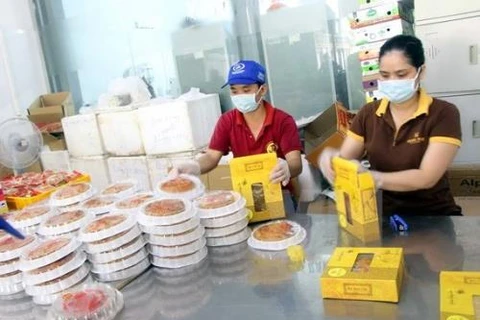Thua Thien – Hue (VNA) – A festival featuring the “thanh tra pomelo”, a specialty of the central province of Thua Thien-Hue, opened in Hue city on August 31 to promote the trademark of the product as well as tourism in the former royal capital city.
This year, the biennial event has 60 booths introducing thanh tra pomelo grown in different localities across the province, including Thuy Bieu of Hue city, Phong Thu in Phong Dien district, Huong Van in Huong Tra town, and Duong Hoa in Huong Thuy town. The fruit takes on a unique flavour according to each locality it is grown in.
The fruit has become famous due to its unique taste. It is sweeter and does not have the slightly bitter taste found in other types of pomelo. It also has a light mint flavour.
The fruit has become renowned as it was once famously reserved for only the royal family members of the Nguyen Dynasty (1802-1945).
Originally, the citrus tree was grown only in those three villages, where alluvia soil was deposited annually by the Huong and Bo rivers. A decade ago, farmers in other regions around Hue started planting the trees to meet the increasing demand of this specialty fruit from localities around the country.
Experts, however, have said that the fruit grown outside those three villages are not as tasty, explaining that the difference is due to the difference in soil.
At the festival, visitors get chance to taste dishes made with the fruit’s flesh, peel, and leaves. These include pomelo wine, pomelo spring rolls, pomelo sweet soup, pomelo tea, chicken salad with chopped pomelo leaves, dry squid-pomelo salad, and pomelo peel marmalade. During the day, organisers provide electric buses to transport those who want to visit the thanh tra pomelo orchards.
They will also have chances to visit thanh tra farms and some other famous tourism destinations of Hue city’s Thuy Bieu wards.
Currently, Thua Thien-Hue has about 1,114ha of thanh tra pomelo farms. In Thuy Bieu commune alone, 127ha out of a total 147ha harvest the fruit with the production of 450-500 tonnes per year, helping local farmers earn 20-25 billion VND per year. –VNA
VNA























